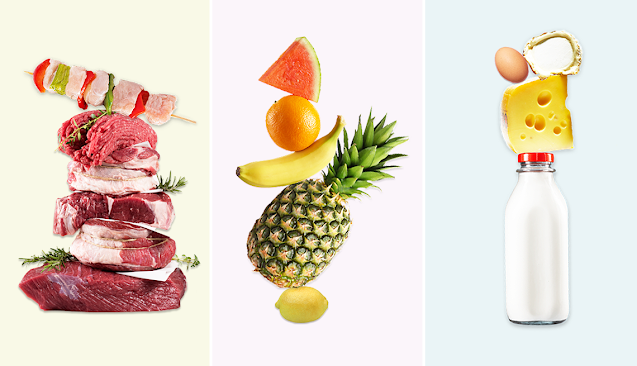Unveiling the FODMAP Diet for Irritable Bowel Syndrome: A Comprehensive Guide to Alleviating Symptoms
The Diet for Irritable Bowel Syndrome: Foods to eat and to avoid
Introduction:
Are you among the millions grappling with irritable bowel syndrome (IBS) and its discomforting symptoms? Don't fret; relief might be closer than you think. The FODMAP diet has emerged as a beacon of hope for many, offering a roadmap to ease the distress caused by IBS. Let's embark on a journey through the intricacies of this dietary approach to understand how it can transform your gut health and overall well-being.
Understanding the FODMAP Diet:
Picture this: fermentable oligosaccharides, disaccharides, monosaccharides, and polyols. These tongue-twisting terms might sound daunting, but they're the key players in the FODMAP diet. In simpler terms, they're types of carbohydrates found in various plant-based foods. For individuals with IBS, these carbohydrates can be hard to digest, exacerbating symptoms like gas, bloating, and stomach pain.
Phases of the FODMAP Diet:
Embarking on the FODMAP journey entails traversing through three distinct phases, each with its own set of objectives.
1. Elimination: During this initial phase, high-FODMAP foods bid adieu from your plate. With the guidance of a registered dietitian, you'll navigate this period to gauge its impact on your symptoms.
2. Reintroduction: Gradually, you'll reintroduce high-FODMAP foods one by one, meticulously observing how your body reacts. This phase serves as a detective mission, helping you pinpoint trigger foods.
3. Personalization: Armed with insights from the previous phases, you'll craft a customized eating plan that strikes a balance between low-FODMAP and non-triggering high-FODMAP foods. This sustainable approach ensures long-term symptom management without unnecessary dietary restrictions.
Navigating High-FODMAP Foods:
In your quest for relief, certain foods must take a backseat to alleviate IBS symptoms. Brace yourself as we unveil the culprits:
• Vegetables: Onions, garlic, cauliflower, cabbage, mushrooms, and peas.
• Fruits: Apples, blackberries, cherries, mangoes, peaches, pears, prunes, and watermelon.
• Meat: Processed meats that may contain hidden FODMAPs.
• Grains: Barley, rye, spelt, and wheat.
• Nuts: Cashews and pistachios.
• Dairy: Cow, goat, and sheep milk.
Embracing Low-FODMAP Delights:
As you bid farewell to high-FODMAP foes, a world of low-FODMAP delights awaits:
• Vegetables: Broccoli, bell peppers, carrots, celery, corn, cucumber, eggplant, kale, lettuce, potatoes, and sweet potatoes.
• Fruits: Bananas, clementines, grapes, honeydew melon, lemons, oranges, pineapple, and strawberries.
• Proteins: Beef, chicken, lamb, pork, eggs, and various nuts and seeds.
• Grains: Oats, quinoa, gluten-free options like breads and pasta, popcorn, rice, and cornmeal.
• Dairy Alternatives: Almond milk, lactose-free milk, and various cheeses like brie, cheddar, and feta.
Weight Management and Beyond:
While shedding pounds isn't the primary goal of the FODMAP diet, it's not uncommon for some to experience weight loss due to its emphasis on whole foods. Should weight management be a priority alongside symptom alleviation, consulting a dietitian ensures a balanced approach that meets your nutritional needs.
Navigating the Challenges:
Embarking on the FODMAP journey isn't without its hurdles:
1. Initial Overwhelm: Bid farewell to beloved favorites like onions and apples can feel daunting initially. However, as you progress through the phases, you'll discover a newfound culinary landscape.
2. Financial Considerations: Opting for gluten- and dairy-free alternatives may strain your wallet initially. Yet, the absence of pricey indulgences like processed snacks and alcoholic beverages can offset the cost.
3. Social Situations: Dining out or attending social gatherings may pose challenges, but with time and practice, you'll learn to navigate these situations with confidence.
Conclusion:
The FODMAP diet isn't just about what you eat; it's a journey toward reclaiming control over your digestive health and overall well-being. Armed with knowledge, guidance from a skilled dietitian, and a dash of perseverance, you're well-equipped to embark on this transformative path toward a happier, healthier gut.
Disclaimer:
The information provided in this article is intended for informational purposes only and should not be construed as medical advice. Before making any changes to your diet or lifestyle, consult with a healthcare professional, particularly if you have a medical condition such as irritable bowel syndrome (IBS). Each individual's dietary needs and responses may vary, and it's essential to seek personalized guidance tailored to your specific health circumstances.
Original Article:
For more in-depth insights into the FODMAP diet and its application for managing IBS symptoms, please refer to the original article [Here]




Comments
Post a Comment